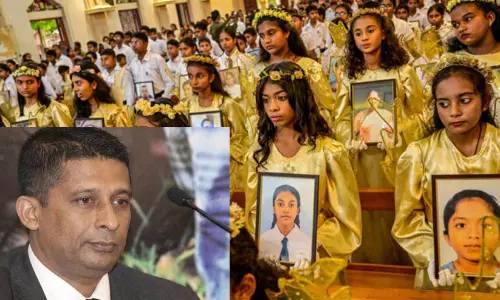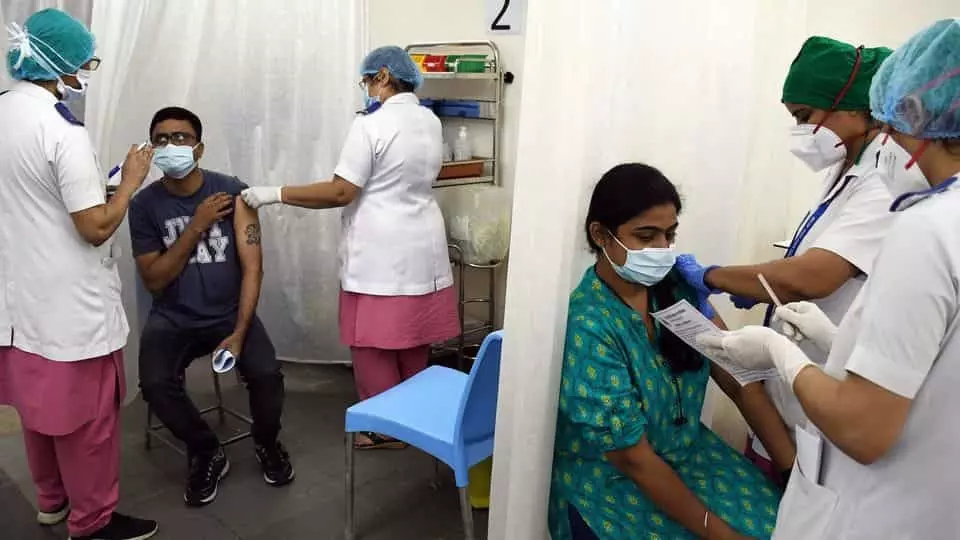
Taking stock of Covid situation - after a year
text_fieldsNow is a crucial moment to look back at the outcome of Prime Minister Narendra Modi's declaration of a Janata curfew and the nationwide restrictions on the lives of the people in the early stages of the outbreak of the Covid-19 pandemic. A year has passed since the lockdown; people's lives have begun to return to normal in bits and pieces. However, when the Janata Curfew was declared on March 20, 2020, the total number of reported cases in India was 169; in a year, 1,16,46,081 people have been affected. 47,000 cases were reported daily on average; 1,59,967 died. Thus, India became one of the countries with the highest number of Covid patients in the world. In a country of 135 crore people, this number cannot be described as unexpected or unnatural. The highest number of cases were reported in Maharashtra, Gujarat, Andhra Pradesh, Telangana, Karnataka, Kerala and Punjab.
Kerala, which initially had a reputation as a model for India, and perhaps the rest of the world, in terms of controlling the pandemic, then gradually came to lead states with the highest number of Covid patients. This can be attributed to reasons like the return of a large number of migrants and expatriate Keralites from the affected countries and states, and the widespread violation of Covid protocol. However, the role played by the people, by weakening vigilance when it was most required, resulting in doubling the number of patients, cannot be overlooked. If the Onam celebrations in 2020 were the first event that led to a mass spread of the infection, it intensified during the local elections despite repeated warnings of the authorities. The number of Covid positive patients, which went down in the last four months, has started increasing the past week in Maharashtra, Punjab, Kerala, Karnataka and Gujarat. On Sunday, 46,951 cases were reported. In two weeks, the number of Covid deaths has increased to 212. From earlier on, the fatality rate was low in Kerala.
While it is reassuring to know that rates are declining as the number of tests reduces, continued caution is required as the threat of a more alarming second stage looms large. Only a few weeks ago, Chief Minister Pinarayi Vijayan was addressing the people on a daily basis, presenting the figures of Covid-19, and urging them to be vigilant. It was urged that the elderly avoid going out as much as possible, crowded situations be avoided, and masks be worn mandatorily. The police were entrusted with the responsibility to ensure that the protocol is followed in addition to the power to execute punishments in cases of violation.
However, the situation has changed with the announcement of the assembly elections. The Chief Minister himself has addressed several rallies of thousands where the Covid protocol was defied. So with other leaders. This situation which causes a community spread must indeed worry the public. One could say that the vaccines have induced a sense of laxity and lack of caution in people. The national health ministry statistics say that 4,50,65,998 people have been vaccinated so far. It is still a long road ahead to vaccinate even a tenth of the 130 crore people left. It is not that the people are averse to vaccinating, but rather a serious lack of health infrastructure is causing the delay. Even the state of Kerala which leads the nation in healthcare, needs solid cooperation from the Centre to finish vaccinations in a reasonable time. The primary need is to ensure a proper supply. The move to make vaccines free of cost in government hospitals is definitely laudable. However, the financially sound segment relying on private hospitals without waiting for the free vaccinations will make a significant impact. The fear of side effects has been deemed baseless in the meantime. The only way out is to ensure that the government, health workers and the people continue to exercise caution until this process is completed.























